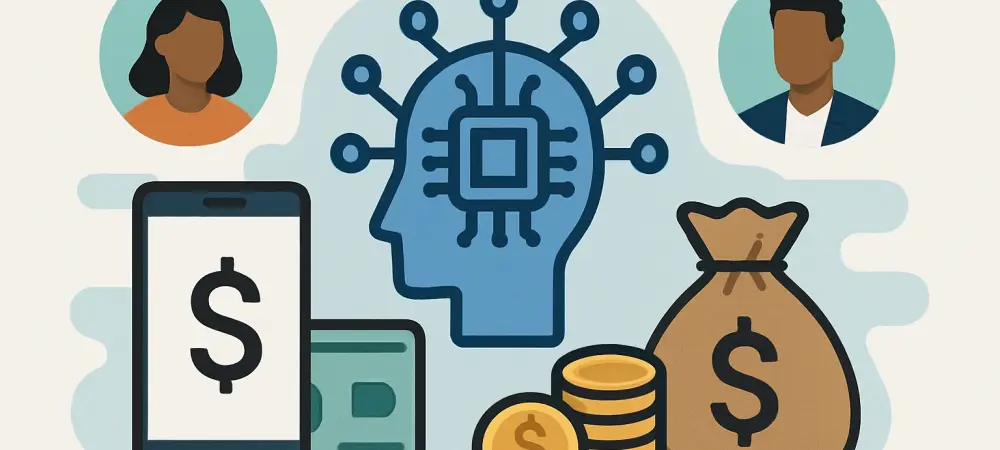What if a single technology could unlock financial access for millions while safeguarding billions in transactions across the globe? Artificial Intelligence (AI) is doing just that, transforming the financial services sector in ways that are both profound and urgent. In a world where digital banking is the norm, yet vast populations remain excluded from basic financial tools, AI emerges as a powerful force. This technology is not merely an upgrade—it’s a lifeline for the unbanked and a shield against escalating cyber threats, reshaping how banks operate and serve their customers.
Why AI Commands Attention in Financial Services
The financial sector stands at a critical juncture where innovation is no longer optional but essential. AI has become a cornerstone of this evolution, driving efficiency in operations and enhancing customer interactions at an unprecedented scale. Banks and institutions that adopt these tools are not just keeping pace—they are setting the standard for a rapidly digitizing industry. The stakes are high, as the technology promises to address systemic challenges that have persisted for decades.
Beyond operational gains, AI’s ability to tackle pressing global issues makes it impossible to ignore. With fraud losses reaching staggering levels and significant portions of the population still lacking access to banking, the need for a transformative solution is clear. AI offers a path forward, merging accessibility with robust security measures to create a more resilient financial ecosystem for all stakeholders.
AI’s Vital Role in a Digital Financial Era
In today’s landscape, where digital transactions dominate, the gap between those with access to financial services and those without remains alarmingly wide. The World Bank reports that over 57% of adults in Sub-Saharan Africa are unbanked, highlighting a persistent barrier to economic growth. AI steps in as a bridge, enabling innovative solutions that extend banking services to remote and underserved regions without the need for traditional infrastructure.
Simultaneously, the rise of digital platforms has amplified cybersecurity risks, with fraud costing the global economy over $3.6 billion annually. AI’s capacity to analyze vast datasets in real-time offers a defense mechanism that traditional systems cannot match. By addressing both exclusion and security, this technology is proving indispensable to the modern financial framework, ensuring that progress does not come at the expense of safety.
How AI Is Redefining Financial Services
AI’s impact on the financial sector is multifaceted, touching every aspect of banking with tailored solutions. One striking example is in customer experience, where AI-powered chatbots manage thousands of interactions daily. Absa Bank in Africa, for instance, handles over 10,000 queries through its AI system, slashing wait times and elevating user satisfaction to new heights.
Financial inclusion also sees remarkable strides through AI’s use of alternative data. By analyzing mobile usage patterns, companies like Tala have disbursed millions in microloans to individuals previously excluded from credit systems. This approach is breaking down barriers, empowering communities in regions where traditional banking has failed to penetrate, and fostering economic stability.
Security and personalization further underscore AI’s transformative power. Real-time fraud detection systems, as implemented by First National Bank (FNB) in Africa, have significantly curbed fraudulent activities, saving substantial losses. Meanwhile, predictive analytics allows banks to customize offerings based on customer behavior, ensuring that services are not only relevant but also strategically aligned with market demands.
Insights and Stories from the Frontlines
Voices from the industry provide a grounded perspective on AI’s real-world impact. Lenovo’s CIO Playbook 2024 reveals that 50% of banking and financial services leaders consider AI pivotal, with 67% investing in generative tools to enhance operations. This data reflects a strong consensus on the technology’s potential to redefine the sector’s future.
Beyond numbers, tangible success stories add depth to the narrative. Tala’s efforts in extending credit to unbanked populations in Africa highlight how AI can change lives by providing financial access where none existed before. However, industry insiders also caution against ethical pitfalls, emphasizing the need for transparency in data usage to maintain trust—a reminder that innovation must be paired with responsibility.
Actionable Approaches to Leverage AI in Finance
For financial institutions ready to embrace AI, practical steps can pave the way for effective integration. Adopting chatbots and virtual assistants for routine customer queries can free up human resources for more complex issues, streamlining operations. This shift not only boosts efficiency but also enhances the overall client experience in a competitive market.
Focusing on inclusion, banks can use AI to evaluate creditworthiness through non-traditional data, reaching unbanked populations with accessible products. Simultaneously, investing in fraud detection systems ensures transactions are monitored in real-time, minimizing risks. Establishing ethical guidelines for data privacy and partnering with governments to improve tech infrastructure in underserved areas are equally critical to ensuring equitable access and trust.
These strategies, when executed with precision, enable institutions to harness AI’s benefits while mitigating potential drawbacks. The focus must remain on balancing innovation with accountability, ensuring that the technology serves as a tool for progress rather than a source of disparity.
Reflecting on a Transformative Journey
Looking back, AI had already begun to reshape financial services by addressing long-standing challenges with unmatched precision. It had opened doors for millions previously excluded from banking, fortified defenses against fraud, and personalized customer interactions in ways once thought impossible. Each advancement marked a step toward a more inclusive and secure financial landscape.
The path ahead demanded a commitment to ethical practices and strategic planning from industry leaders. Institutions needed to prioritize workforce training to adapt to automation, while robust data protection measures had to be non-negotiable. Collaborative efforts to bridge the digital divide were essential to ensure no one was left behind in this technological evolution.
Ultimately, the legacy of AI in finance hinged on a shared resolve to innovate responsibly. By focusing on accessibility, security, and trust, the sector could continue to build on past achievements, creating a future where financial empowerment was not a privilege but a universal right.

